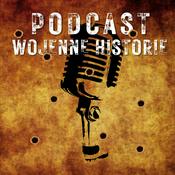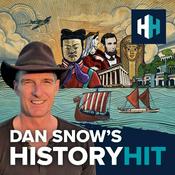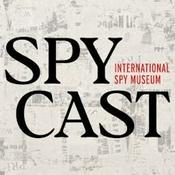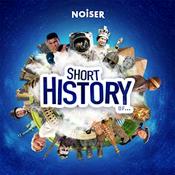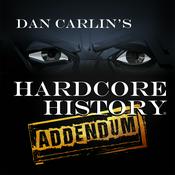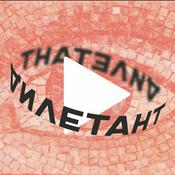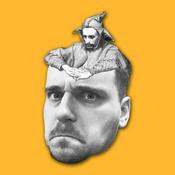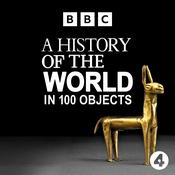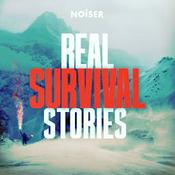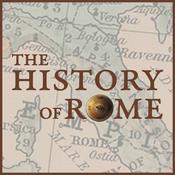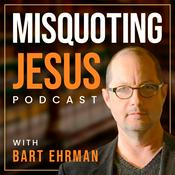13 odcinków
Immortal Beings: The Selfish History of Things That Refuse To Die - From DNA & Religion to Memes & Digital Gods
06.02.2026 | 42 min.Why are we here? Can the patterns of history and nature tell us anything new?
In this episode of How to Change the World we trace a clear line. From ancient molecules learning to copy themselves, to religions and nations learning to spread, to algorithms that now compete for your attention. All on a subversive quest for immortality.
This hidden history of innovation maps the evolution of the universes most successful survivors. Learn the game theory of how these immortal beings compete and impact society.
This season has been about a species of hairy apes and how they became human. Today we combine science, history, and philosophy to build a set of mental models that explain the animal and human landscape of today and quite possibly tomorrow. The future of humanity depends on the decisions and innovations of today.
This episode will turn a lot of your ideas about the world on their head:
Have you ever considered that your genes don't exist to build you, you exist to build your genes?
Do you have ideas or do ideas colonize your mind - eating away at your attention just like we eat food to survive?
Is innovation more about what we spread, than what we invent?
Become a Member
Patreon.com/ChangeTheWorldPod
Access to behind the scenes episodes
Ask Sam anything
Support the show
ABOUT
How to Change the World is an independent podcast on a mission to document the entire history of innovation. One world-changing event at a time. In the process we are building out frameworks and mental models to think more coherently about global change.
Written, edited, recorded, and produced by Sam Webster Harris.
🤓 Website: ChangeTheWorldPod.com
🤗 Join the Patreon: Patreon.com/ChangeTheWorldPod
Help from:
👩🎨 Design - Francisca Correia (available to hire)
🧙♂️ Mentorship - Jeremy Enns (available to hire)
Resources
The Selfish Gene - Richard Dawkins
The Extended Phenotype: The Long Reach of the Gene - Richard Dawkins
CHAPTERS
00:00 You are a robot
01:47 Patterns of Nature
03:04 ACT 1 - CONTROL
03:39 Nico Tinbergen and the randy fish
06:05 The Primordial Soup Starter Kit
07:23 Algorithmic Governance
08:43 ACT 2 - CO-OPERATION
08:43 Cancer
11:03 Fear of death and The Birth of religion
12:42 ACT 3 - EXTERNAL CONTROL
12:42 Extended Phenotypes
14:55 Remote control
18:01 ACT 4 - IDEA VATS
18:01 Consciousness
20:31 What is a meme?
21:32 Genes vs Memes Speed
23:21 Idea Propogation
25:46 Carrier Class
27:40 ACT 5 - GAME THEORY
28:03 Hawk Dove Conjecture
29:16 Gravity Wells & conformity
30:39 ACT 6 - INNOVATION
30:39 Complexity - Meme Stacks
32:15 Innovation
34:13 ACT 7 - IMMORTAL MINDS
34:13 The Third Replicating Medium - Silicon
36:53 Immortal Minds
38:06 What does it mean to be conscious?
39:45 Building the future
41:28 Sign off
Hosted on Acast. See acast.com/privacy for more information.[~52,000BC] The Eyed Needle: The History of Clothes, Fashion, Beauty and Status Games
03.12.2025 | 1 godz. 2 min.How humanity invented clothes. In the process, accidentally warping our psychology, sparking civilization, and changing what it means to be human forever.
A fish doesn’t know it’s wet, and a human doesn’t know they are hiding. But every morning, you participate in a ritual that separates you from nature, and your own biology.
For 90% of human history, we were naked. Then, in a blink of evolutionary time, we decided to cover up. This episode of How to Change the World challenges the standard narrative of invention stories.
We’ll explore:
Side effects: The invention of the needle to stitch leather went on to stitch the fabric of human civilization
Mental models: how one idea change the psychology of privacy, shame, and status
The Algorithm of Desire: How ancient fashion trends set the rules for modern attraction and power dynamics.
Join the deep dive into the psychology of change and the invisible lines that define our future society.
Become a Member
Patreon.com/ChangeTheWorldPod
Access to behind the scenes episodes
Ask Sam anything
Support the show
ABOUT
How to Change the World is an independent podcast on a mission to document the entire history of innovation. One world-changing event at a time. In the process we are building out frameworks and mental models to think more coherently about global change.
Written, edited, recorded, and produced by Sam Webster Harris.
🤓 Website: ChangeTheWorldPod.com
🤗 Join the Patreon: Patreon.com/ChangeTheWorldPod
Help from:
👩🎨 Design - Francisca Correia (available to hire)
🧙♂️ Mentorship - Jeremy Enns (available to hire)
Resources
Climate, Clothing and Agriculture in Prehistory - Ian Gilligan
A complete account of the development of clothing, from Cambridge University Press.
CHAPTERS
00:00 Naked Dreams
01:38 Welcome
03:50 1 - FIRST CLOTHES
03:50 Genesis
07:00 Naked Ape vs. The Ice Age
09:13 Foot bags
10:40 Tanning a hide
13:03 Lice and Permanent Clothing
18:49 The Eyed Needle
21:49 2 - PSYCHOLOGY REVOLUTION
21:49 Privacy
23:26 Modesty, Shame and Maturity
27:45 Fashion and Mammoth Beads
29:34 Beauty, Biology and Culture
31:12 Culture
32:04 3 - EXTERNALISING ENCLOSURE
33:40 Textiles and Weaving
34:19 Farming Clothes
35:18 Birth Control And Population Growth
37:21 New Religions
38:52 Shoe Technology
40:37 Enclosure Thesis
42:39 4 - PHILOSOPHY OF CLOTHES
42:39 The Cost of Beauty
43:38 Belladona - eye poisoning
44:45 Status beauty - skin and teeth
46:30 Chinese feet binding
49:22 Modern trends and surgeries
51:09 Algorithm of Desire
52:28 What clothing means today
56:32 WHAT DOES IT MEAN TO BE A HUMAN?
58:13 The evolution of nakedness
01:00:50 Become a member
Hosted on Acast. See acast.com/privacy for more information.Membership - Giving you more history, more science and more mind bending facts about naked chimpanzees (us)
17.11.2025 | 4 min.Behind the scenes access to extra content and surprising stories. Sam reveals all sorts of chaos from the weird pages of history, science and the even stranger insides of his mind...
You can support the show and claim your place in history by joining the VIP members club.
What's occurring? As every episode has a lot research that goes unused, we're making an extra sister episode for all every main history episode.
We'll also give extra updates on what's going on and chances to vote on topics.
Premium episodes include:
Cool findings that didn't make the main episode
Fact checking and deeper explanations of confusing stuff
Insights into the process (or lack of) that make the show
AMA questions
Excited, curious or just love clicking links?
Join the Patreon membership - Patreon.com/ChangeTheWorldPod 🤗
ABOUT
How to Change the World is an independent podcast on a mission to document the entire history of innovation. One world-changing event at a time. In the process learning about frameworks and mental models to think deeeeply about what it means to be human and make stuff happen.
Written, edited, recorded, and produced by Sam Webster Harris.
🤓 Deets: ChangeTheWorldPod.com
Help from:
👩🎨 Design - Francisca Correia (available to hire)
🧙♂️ Mentorship - Jeremy Enns (available to hire)
CHAPTERS
00:00 Biiiiiiiiig announcement
01:15 Wait - it's just a Patreon...
01:30 What do YOU get?
02:40 What you DON'T get
03:05 DVD's - Anyone remember those things..?
04:00 Episodes will be interviews
04:31 Join the club (please)
Hosted on Acast. See acast.com/privacy for more information.Thinking in Primitives: A Mental Model for Building Creative Ideas, Civilization, and Intergalactic Lasagna
31.10.2025 | 29 min.The most important innovations are invisible. Yet they are reliable building blocks of creativity that fuel human imagination.
The same 26 letter alphabet lets Shakespeare write a play, a researcher publish science or you can text your mum.
A standardised screw thread lets you build a house, a car or a space station.
This is the story of primitives; the fundamental components that make everything else possible. We explore how Jeff Bezos coining the term "Thinking in Primitives" as he invented AWS to the building blocks of the universe and life in it.
Join our tour through the weird and wonderful ideas of history as we gather ideas for how to build the future of humanity, space technology and anything you can imagine.
You'll learn:
By breakthroughs depends on invisible primitives created by someone before you
Why the most valuable opportunities are the ones everyone uses but nobody sees
How to identify foundational building blocks in any industry before competitors do
ABOUT
How to Change the World is an independent podcast on a mission to document the entire history of innovation. One world-changing event at a time. In the process we are building out frameworks and mental models to think more coherently about global change.
Written, edited, recorded, and produced by Sam Webster Harris.
🤓 Website: ChangeTheWorldPod.com
🤗 Join the Patreon: Patreon.com/ChangeTheWorldPod
Help from:
👩🎨 Design - Francisca Correia (available to hire)
🧙♂️ Mentorship - Jeremy Enns (available to hire)
Resources
10 Greatest Mental Models of Jeff Bezos
Sam explains the best mental models of Jeff Bezos on his Growth Mindset Psychology podcast.
CHAPTERS
00:00 Intergalactic Planetary... Lasagna
01:40 A mental models episode about building blocks
03:11 #1 - THINKING IN PRIMITIVES: JEFF BEZOS, AMAZON and AWS
04:03 The API Memo
04:39 What is a Primitive?
04:57 How Amazon launched AWS
05:36 The impact of AWS and cloud servers
06:18 #2 - THE BUILDING BLOCKS OF LIFE
07:18 How are humans built?
08:09 Mitochondria and energy production
09:39 HOX genes and the animal building instruction manual
11:06 How primitives become essential foundations
12:35 #3 - CIVILIZATION AND HIDDEN INVENTIONS
14:02 The Essential Ingredients of Early empires
15:42 Standardisations that make the world work
17:54 #4 - PRIMITIVE LESSONS
19:37 Market timing and innovation mistakes
21:31 Just do stuff
23:00 #5 - FUTURE OF TECHNOLOGY & INNOVATION
23:19 CRISPR and Casgevy
25:19 Space and Orbital Refuelling
27:14 Wrap up
Hosted on Acast. See acast.com/privacy for more information.[~64,000BCE] - The Bow & Arrow: A Brief History of Stone Age Weapon Technologies and Their Impact on Humanity
15.10.2025 | 59 min.From Stone flakes to the Bow and Arrow. How Stone Age weapons innovation shaped humanity and triggered global extinction events. Three million years ago, we were semi-hairless apes hiding from lions. Today we're the apex predator of planet Earth.
This episode traces the entire weapons journey through Ancient History; sharp rocks, hand axes, spears, atlatls, and bows and arrows.
Learn how we became humans we know today as we outsourced biology to technology, trading muscle for tools, brute force for precision. We also changed socially as values of teamwork, trust and intelligence forged the mental models that would build civilization and transformed humanity forever.
Key takeaways:
Technology and humans co-evolved - every tool invention was matched by physical, intellectual, and social updates
Marginal advantages compound into existential differences over time - other hominids were wiped out as only sapiens remained
Wisdom takes time to catch up with out power
Discover how ancient innovation patterns still shape the future of technology today.
ABOUT
How to Change the World is an independent podcast on a mission to document the entire history of innovation. One world-changing event at a time.
Written, edited, recorded, produced by Sam Webster Harris.
Website: ChangeTheWorldPod.com
Patreon: Patreon.com/ChangeTheWorldPod
Help from:
👩🎨 Design - Francisca Correia (available to hire)
🧙♂️ Mentorship - Jeremy Enns (available to hire)
BOOKS
The Human Story - Robin Dunbar
How humans evolved away from apes and developed tools.
Stone Tools in Human Evolution - John J. Shea
How our stone tools evolved over 3 millions years.
CHAPTERS
00:00 Magical Powers
02:10 Introduction to Stone Age Weapons
04:28 1 - THE OLDOWAN FLAKE (~3 MYA)
07:07 Evolution feedback loop
08:18 Human obsession with time saving
09:08 Status flexing
10:01 2 - ACHEULEAN HAND AXE (~1.7MYA)
10:55 Why did we care about beauty?
12:08 Status games
13:00 Brain growth and imagination
14:40 3 - SWEAT AND PERSISTENCE HUNTING (~1.5MYA)
17:59 4 - HAFTED SPEARS (~500,000BC)
20:52 Steps to make a Hafted Spear
22:24 Co evolution of shoulder throwing
23:37 Teamwork and language co-evolution
24:47 Leadership qualities
26:06 5 - ATLATL / SPEAR LAUNCHER (~100,000-50,000BC)
28:40 How an Atlatl works
30:12 Accuracy over strength
30:30 Timeline of Atlatl development
31:15 6 - BOW AND ARROW (~64,000BC)
33:06 How to make a bow and arrow
34:33 The First great invention?
35:50 Yes my sister shot the headmaster...
36:40 Hunting with archery
38:55 Evolution compared to Neanderthals
41:30 HUMANITY - THE GREAT FILTER
42:18 Australian Extinction event
43:34 Europe - Neanderthal Extinction
44:46 The Conquest of America - Pleistocene Blitzkrieg
46:11 The Rise of Human Conflict
47:58 MODERN LESSONS AND FUTURE WEAPONS
49:07 Algorithms
51:58 Supply Chains
52:55 Cognitive Warfare
54:13 Teamwork
56:02 ROUNDUP
Hosted on Acast. See acast.com/privacy for more information.
Więcej Historia podcastów
Trendy w podcaście Historia
O How to Change the World: The History & Future of Innovation
Sam Webster Harris chronicles the complete history of innovation from the Stone Age to the modern day. Learn how transformative ideas build upon each other to change the world and shape the future of humanity.Every breakthrough that changes civilization begins with curiosity. From the first controlled fire to artificial intelligence. Follow the journey, step-by-step, tracing the evolution of human progress and society. On the way, uncovering the nerdy stories and fun facts behind world-changing inventions and the mental models that drive systemic change.Each episode is a deep dive into innovation patterns and the threads that shape our world: - From Leonardo Da Vinci dissecting human bodies to editing our own DNA - Maritime Navigation sets the course for Interstellar exploration - Hammurabi's legal code is relevant in algorithmic governanceModern revolutions in technology and the future of AI are a continuation of core needs of their human creators. Our desire for leverage shows up time and again in the history of civilization.Drawing insights from psychology, economics, and anthropology, we explore how change makers in history like Galileo, Newton, and Tesla didn't just discover big ideas. They transformed civilization itself. Their playbooks reveal timeless strategies for anyone seeking to understand how the world works.This isn't surface-level history. It's intellectual history told through narrative learning—connecting past invention stories to the future of technology, future of society, and patterns of history that will define the Anthropocene.Whether you're fascinated by the timeline of human history, founder stories, or the psychology of change, each episode delivers actionable mental models wrapped in engaging storytelling. Learn something new about human progress while discovering your own potential to change the world.For the intellectually curious seeking to understand innovation, drive progress, and glimpse the future of humanity. Hosted on Acast. See acast.com/privacy for more information.
Strona internetowa podcastuSłuchaj How to Change the World: The History & Future of Innovation, Prawdziwa historia Polski i wielu innych podcastów z całego świata dzięki aplikacji radio.pl
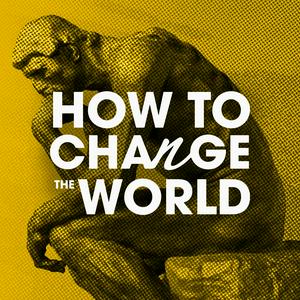
Uzyskaj bezpłatną aplikację radio.pl
- Stacje i podcasty do zakładek
- Strumieniuj przez Wi-Fi lub Bluetooth
- Obsługuje Carplay & Android Auto
- Jeszcze więcej funkcjonalności
Uzyskaj bezpłatną aplikację radio.pl
- Stacje i podcasty do zakładek
- Strumieniuj przez Wi-Fi lub Bluetooth
- Obsługuje Carplay & Android Auto
- Jeszcze więcej funkcjonalności


How to Change the World: The History & Future of Innovation
Zeskanuj kod,
pobierz aplikację,
zacznij słuchać.
pobierz aplikację,
zacznij słuchać.







